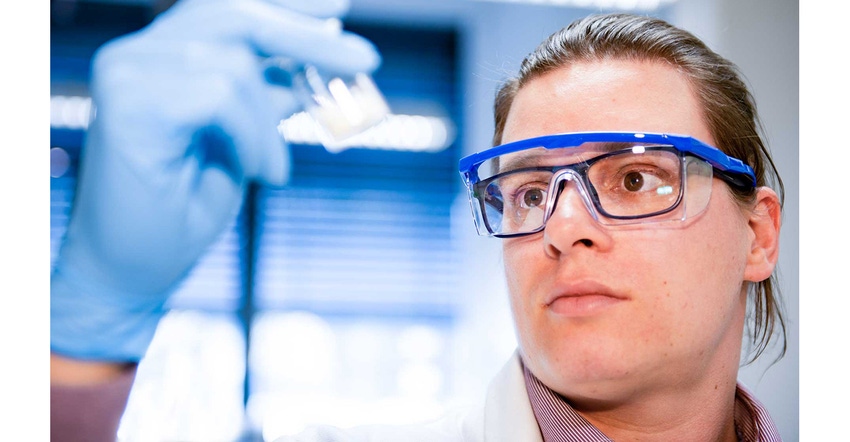The Emmy Noether Group — Next Generation Antimicrobial Polymers — was formed at the start of this year at the University of Potsdam in Germany. The Fraunhofer Institute for Applied Polymer Research IAP is a neighbor and close collaborator.
January 27, 2021

Although the COVID-19 pandemic has understandably bumped it from the news cycle, the "antibiotic apocalypse" is still on the horizon. The overuse of antibiotics has allowed antimicrobial resistance to spread and could, if left unchecked, result in “routine operations, simple wounds, or straightforward infections posing real threats to life,” according to former UK Chief Medical Officer Sally Davies. Preventing that scenario from unfolding requires finding alternatives to antibiotics. One promising avenue of research involves antimicrobial polymers, which is the focus of the Emmy Noether Group — Next Generation Antimicrobial Polymers — at the University of Potsdam in Germany.
The group was formed on January 1 of this year with the mission of developing polymers that can kill antibiotic-resistant germs without harming humans. Chemist Dr. Matthias Hartlieb heads the research team at the university, which benefits from close cooperation with the Fraunhofer Institute for Applied Polymer Research IAP.
"We are very happy to have the Fraunhofer IAP at our side, not only in close proximity — it is located in the Potsdam Science Park — but also scientifically,” said Hartlieb. “In addition to their proven expertise in the field of polymer research, our colleagues have a great deal of experience in the development of bio-functionalized materials and testing with pathogens. They also have the appropriate safety laboratories,” said Hartlieb.
"At Fraunhofer IAP, we are primarily investigating sugar-based interactions with pathogens and testing the antimicrobial efficacy of the newly developed polymers as part of this project,” explained Dr. Ruben R. Rosencrantz, who leads life science and bioprocess research at Fraunhofer IAP. “The transfer of excellent basic research into application plays an important role for us."
The Emmy Noether Program of the German Research Foundation (DFG) supports outstanding young scientists and offers them the opportunity to qualify for a university professorship by independently leading a research group. Hartlieb's group is funded with around €1.6 million for six years.
About the Author(s)
You May Also Like




